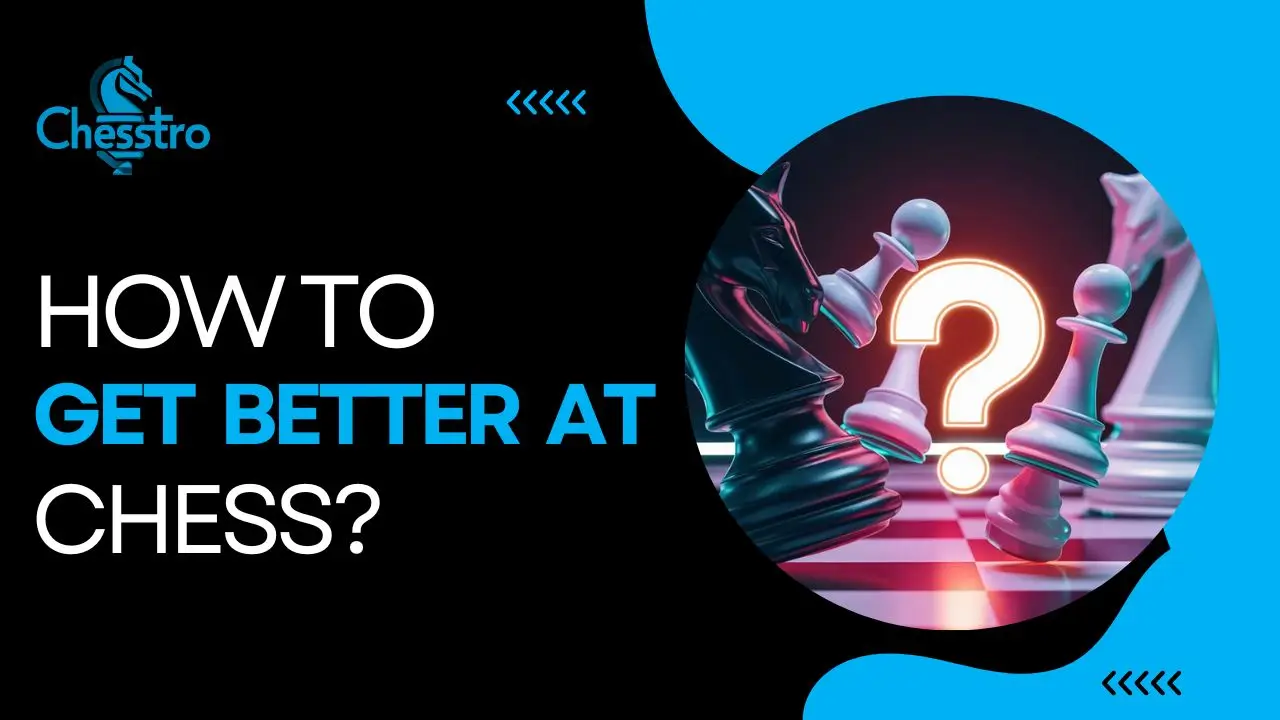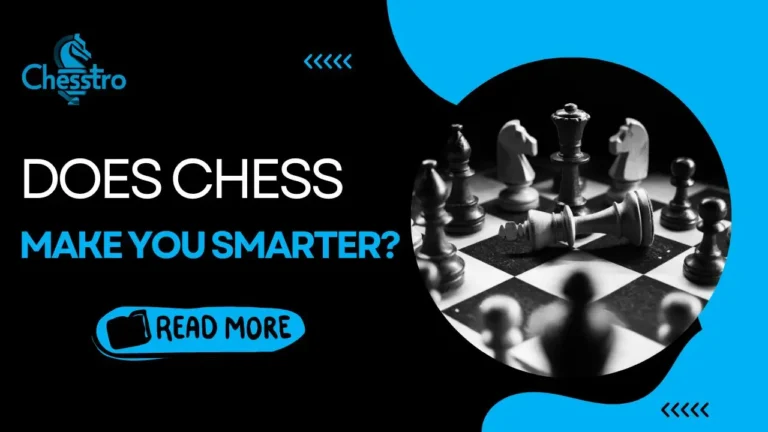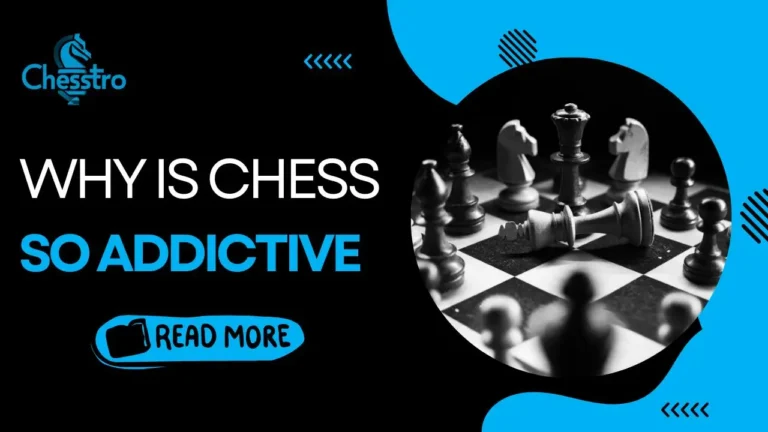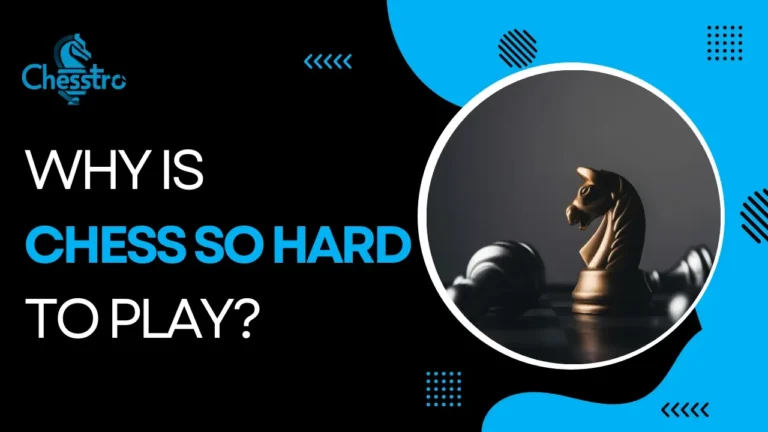How To Get Better At Chess? Master Chess Fast in 2024
How To Get Better At Chess? Chess demands a lot of concentration, practice, and effort. When a player begins to learn the game, they must first understand the names of the chess pieces, how they move, the goal of the game, and a variety of chess rules.
For your Information!
The number of possible ways of playing the first four moves for both sides in chess is 318,979,564,000.
How To Get Better At Chess? Learn The Basic Rules, Play Regularly, Solve Chess Puzzles, Study Chess Principles, and Utilize Chess Resources.
This article describes 7 tips on how to get better at chess. Let’s discuss this now.
You can also learn more about Can A Pawn Capture On Its First Move?
Here Are Some Tips To Get Better At Chess:
To get better at chess, here are some key tips:
Sure, here’s a simplified version:
| Tip | Description |
|---|---|
| Learn The Basic Rules | Understand how each piece moves and learn about checkmate. Practice different ways to win. |
| Study Chess Principles | Know the basics like controlling the center, getting your pieces out quickly, and protecting your king. Apply these ideas to make smart moves. |
| Solve Chess Puzzles | Solve puzzles to improve critical thinking and decision-making skills. Start easy and work your way up. |
| Study Classic Games | Look at games played by good players to learn tricks and strategies. Learn from their moves. |
| Play Regularly | Play often to understand different openings and improve your thinking. Play against different people to learn from them. |
| Analyze Your Games | Review your games to see what you did well and where you can improve. Learn from both wins and losses. |
| Utilize Chess Resources | Read books, use online tools, and join chess communities to learn more. Play online and talk to other players. |
| Improving Calculating Ability and Visualization Skills | Understand how capturing pieces works and practice seeing moves in your head. Use capturing rules to plan ahead and outsmart your opponent. |
Learn The Basic Rules
Knowing the basic rules is the first step to improving at chess. Understanding these rules helps you understand the game’s plans and tricks. Start by learning how each chess piece moves and what it does in the game.
Then, learn about checkmate, which occurs when the other player’s king is in danger and can’t move to safety. Practicing different ways to checkmate helps you see your chances of winning the game.
You can also learn more about Why are some chess boards green?
Study Chess Principles
Studying chess principles is another essential step towards improving one’s chess game. These principles serve as a guide for making wise and strategic moves on the chessboard. By familiarizing oneself with these principles, players can enhance their understanding of the game and develop effective strategies.
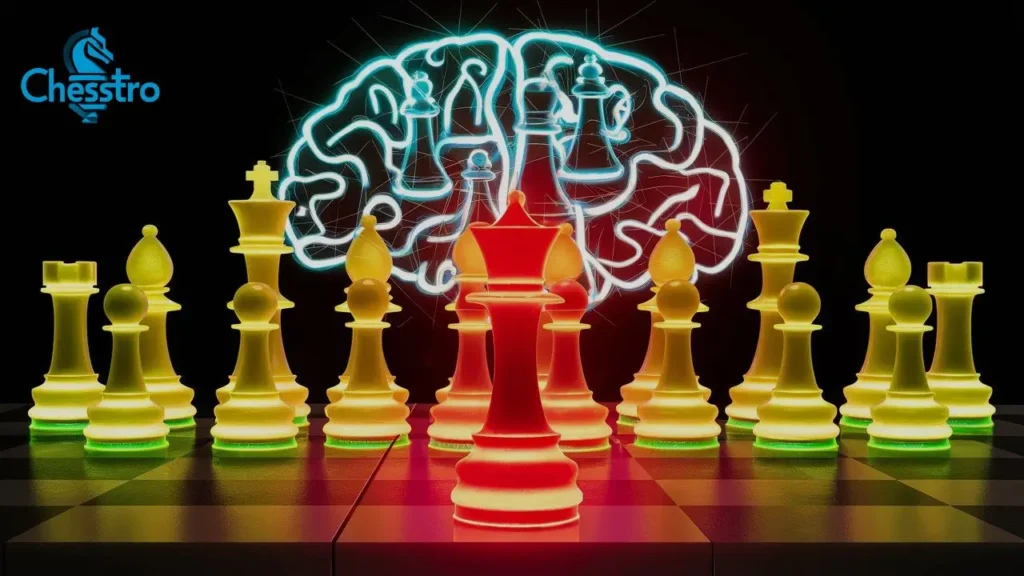
It’s important to get your pieces out quickly and control the middle of the board. This will give you more options to move around and attack.
You can also learn more about Why is f2 weak in chess?
Additionally, It’s important to protect your king in chess by casting early and keeping it safe. Knowing this helps you make smart moves, but you need to practice it to get good at it.
Solve Chess Puzzles
Another great way to improve your chess skills and play smarter is to do chess puzzles. These puzzles challenge players to pick the best moves and solve the given situations.
Doing puzzles often boosts a player’s ability to think critically, spot patterns, and make decisions, which are all key to doing well in chess. You can find chess puzzles in books, on websites, and in special chess software.
You can also learn more about Can You Castle If Rook Is Under Attack?
By doing puzzles regularly, players can get a deeper understanding of chess tricks like forks, pins, and skewers. This helps them see these chances in real games.
Also, doing puzzles can improve how well someone can calculate and accurately judge situations. It’s a good idea to start with easier puzzles and slowly move on to harder ones as you get better.
Study Classic Games
Looking at old games is another key way to improve at chess. These games, played by great players in the past, can teach you a lot about the clever tactics and plans used in chess.
You can also learn more about Where are the chess hustlers
Players can learn good starting moves, middle-game plans, and end-game tricks by really looking at the moves and ideas used by these great players. The classic games give players a chance to fine-tune their chess sense and appreciate the beauty of the game.
Players who want to improve can learn about different game plans, clever sacrifices, or tricky moves that have worked well for a long time. Studying old games also helps players recognize different patterns and themes they can use in their own games.
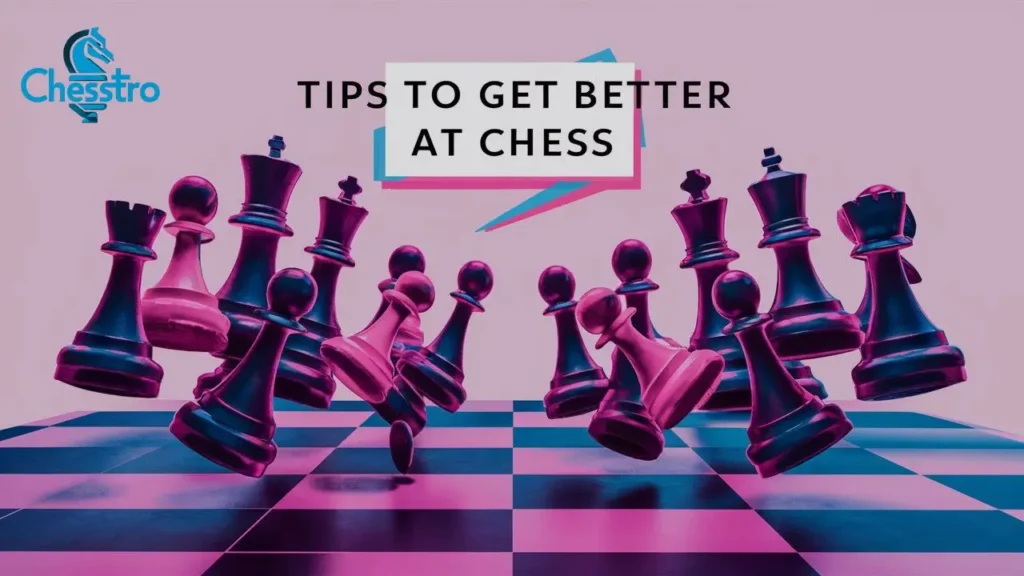
Play Regularly
Playing games often help players improve. They learn different ways to start a game and how to plan their moves. They also enhance their thinking skills and help them make good choices. Practicing a lot helps players recognize common moves, guess what their opponent might do next, and spot possible dangers.
You can also learn more about What is the 20-40-40 rule in Chess?
Playing games regularly also helps improve one’s ability to calculate and remember things. This is because one sees many different game situations and changes. Plus, playing a lot means one plays against many different people with different ways of playing. This helps one learn from each game and change one’s own game plan when needed.
Analyze Your Games
Analyzing our chess games is another crucial step towards improvement and progress in this intricate game. By thoroughly examining our moves and strategies, we can identify our strengths and weaknesses and gain valuable insights into the game’s world.
Firstly, it is essential to study both our victories and defeats. Winning games may highlight successful tactics and positions, while losing games can expose critical errors and vulnerabilities. Secondly, move-by-move analysis is vital.
You can also learn more about Why is Blitz chess so popular?
By revisiting each move, we can reflect on alternative options and consider their potential outcomes. This process helps develop a deeper understanding of the consequences of certain moves, promoting strategic thinking.
Utilize Chess Resources
Improving your chess skills requires utilizing the available resources dedicated to the game.
First, reading chess books and guides helps you understand the game better. You learn about different game plans, tricks, and starting moves. This lets you make smarter moves when you play.
Also, there are lots of helpful tools on the internet to help you get better at chess. You can find online chess lessons, challenges, and interactive learning that help you think better and solve problems better.
You can also learn more about Can You Use Two Hands in Chess?
Plus, joining a local chess group or online chess chats can give you chances to practice playing regularly. You can also talk about the game and get advice from players who know a lot about chess.
Playing friendly games with players of all skill levels lets you see different ways of playing. This helps create a space where you can learn and get better.
How To Improve Calculating Ability And Visualization Skills In Chess?
Capturing is an essential game element in chess, allowing players to eliminate their opponent’s pieces from the board. Some general rules control learning in chess.
Firstly, a player can capture an opponent’s piece by moving one of their pieces onto the occupied square of the opponent’s piece, provided it is a legal move according to the rules of that particular piece.
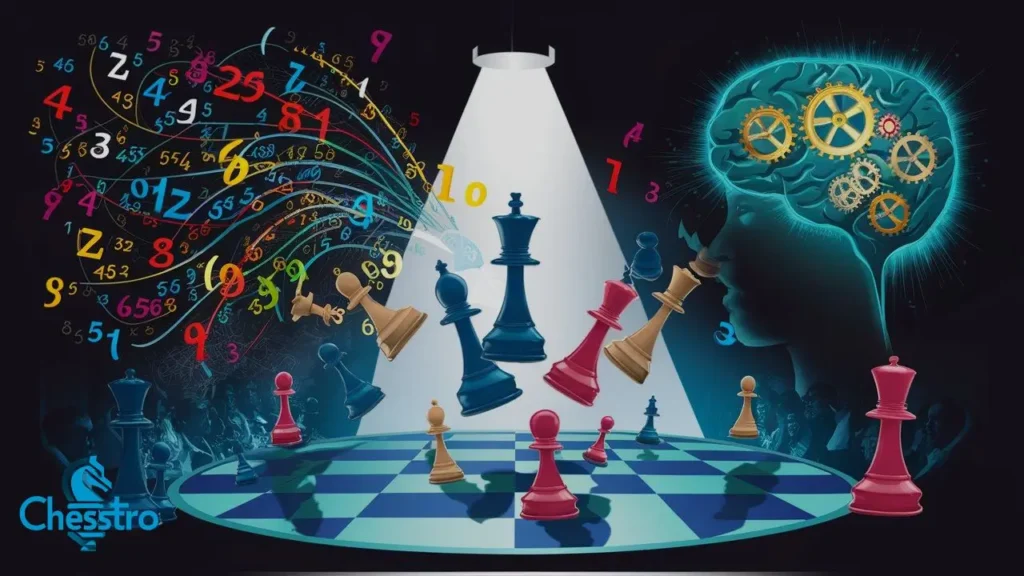
After the piece is captured, it is removed from the board. Secondly, capturing is only possible when the player moves one of their pieces to a square occupied by an opponent’s piece. It is not possible to capture one’s pieces.
You can also learn more about Why Do Chess Players Wear Suits?
Additionally, special rules control the capturing of specific pieces. For example, the knight captures by landing on a square occupied by an opponent’s piece, while the pawn captures diagonally when it moves one square forward.
Overall, understanding and effectively utilizing the rules for capturing in chess is crucial for strategizing and gaining a competitive advantage over opponents.
FAQS: How To Get Better At Chess?
Final thoughts: How To Get Better At Chess?
In conclusion, improving at chess requires a combination of dedication, practice, and a thirst for knowledge. By consistently analyzing your games, studying grandmaster matches, and engaging in regular practice sessions, you can gradually enhance your skills and strategies in the game. Remember that progress may be slow at times, but perseverance is key.
You can also learn more about Why Is Chess So Hard?
As you continue to challenge yourself and embrace the learning process, you will undoubtedly witness significant improvements in your gameplay and overall understanding of this timeless game. So, set your sights high, invest time in honing your skills, and let the journey to becoming a better chess player begin.

